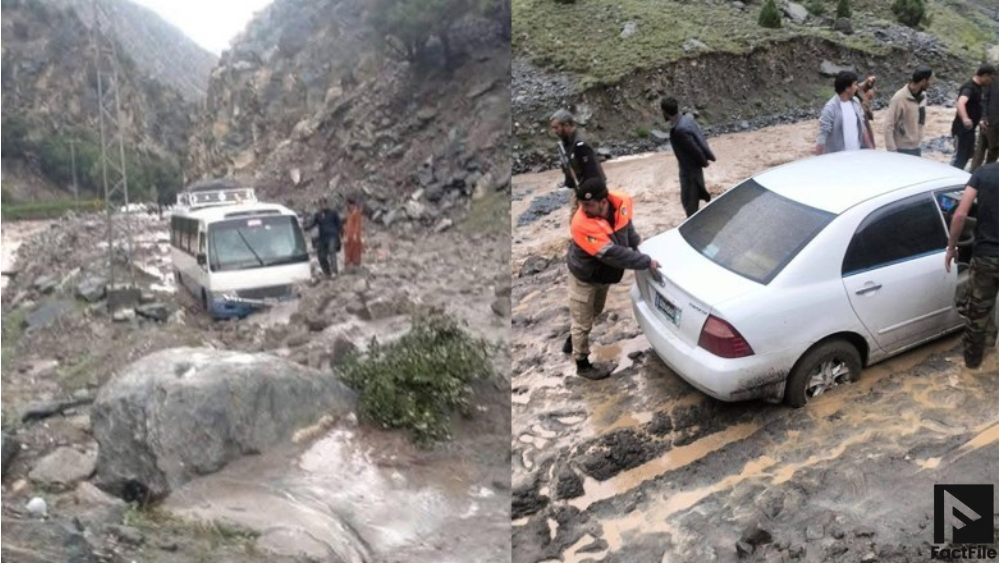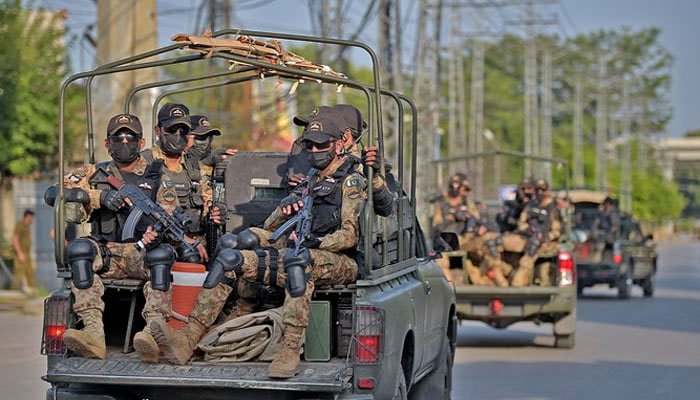Naran, July 26, 2025 — A sudden cloudburst in Naran, Khyber Pakhtunkhwa, triggered flash floods and landslides that blocked the road to Lake Saif-ul-Malook. Hundreds of tourists got stuck, but swift rescue operations moved more than 500 visitors to safety.
Heavy rainfall late Friday night flooded the narrow mountain road, making it impassable. Rocks, debris, and gushing water trapped several jeeps filled with tourists en route to the lake.
Rescue Teams Respond Rapidly
The Kaghan Development Authority, Tourism Police, and Rescue 1122 quickly jumped into action. Crews began clearing the road just hours after the cloudburst. By early Saturday, emergency teams had rescued more than 500 tourists and cleared the way for 117 jeeps to pass safely.
Dr. Abdul Samad, Khyber Pakhtunkhwa’s Secretary of Tourism, confirmed the successful operation. He advised tourists to use helpline 1422 for emergencies and travel updates.
“Tourist safety remains our top concern. We urge all visitors to check weather conditions and follow official instructions,” he stated.
Lake Saif-ul-Malook Travel Suspended Temporarily
Lake Saif-ul-Malook sits over 10,000 feet above sea level in the Kaghan Valley. Known for its beauty and legend, it attracts thousands of tourists in summer. But its steep, unpaved access road often becomes risky during the rainy season.
Due to the recent cloudburst, authorities have halted travel to the lake. Jeep rides have been suspended, and visitors are being asked to remain in Naran until the weather improves.
A Tourism Police officer said, “We’re doing everything we can to keep people safe. Until the road is secure, no further travel will be allowed.”
READ MORE: NDMA Issues Landslide & Flood Warnings as Monsoon Spell Continues
Tourists Share Scenes of Chaos
Tourists shared dramatic videos and photos on social media. One clip showed floodwater racing down hillsides, while another captured a landslide narrowly missing a group of parked vehicles.
A traveler from Lahore wrote, “It was scary. Water surrounded our jeep from both sides. But rescue teams reached us quickly.”
These real-time posts highlighted both the intensity of the storm and the efficiency of the response.
Helpline and Weather Alerts
The Khyber Pakhtunkhwa Tourism Department has activated helpline 1422. Tourists can call this number for rescue support, weather details, and route updates.
Officials are working closely with the Pakistan Meteorological Department (PMD). Forecasts predict more rain over the next 48 hours, increasing the risk of further cloudbursts in Naran and nearby areas.
Experts Warn of More Rain
The PMD has issued warnings for additional rainfall and potential flash flooding in upper Kaghan Valley and Babusar Top. Tourists are advised to delay any planned trips to northern areas during this period.
Officials stressed that landslides and falling rocks remain a threat. Visitors should avoid hiking, riverbanks, and any unpaved roads until conditions stabilize.
Infrastructure Still Under Repair
Bulldozers and excavators remain at work on the blocked routes. Authorities hope to restore full access to Lake Saif-ul-Malook in the next few days if weather allows. Minor road repairs and drainage clearance are also underway.
Kaghan Development Authority officials assured that emergency shelters and food supplies are available for tourists still in the area.
Tourism Department Plans Long-Term Safety Measures
Dr. Abdul Samad noted that better planning is in progress to prevent such incidents. Officials plan to upgrade weather monitoring, improve drainage systems, and install early warning alerts along tourist routes.
“We’re not just responding to emergencies. We’re planning for the future,” he said.
READ MORE: Thunder Showers Expected in Coming Days with Heavy Rain
Tips for Safe Travel
Tourists heading to Naran or other high-altitude spots should take extra care:
- Check weather forecasts before departure.
- Travel only during daylight.
- Avoid driving near rivers or steep slopes during rain.
- Carry warm clothes, snacks, and a power bank.
- Save Tourism Helpline 1422 for emergency use.





